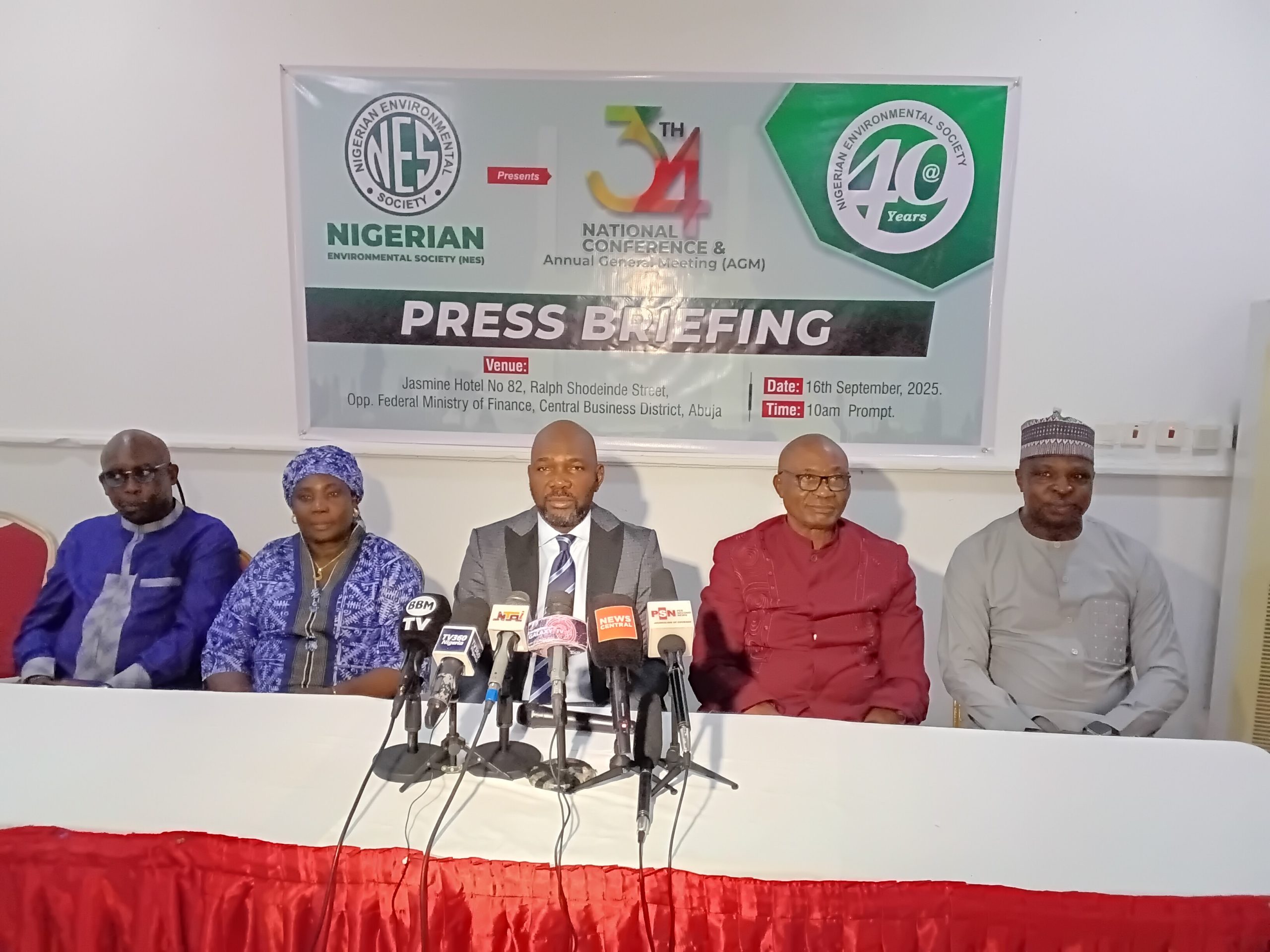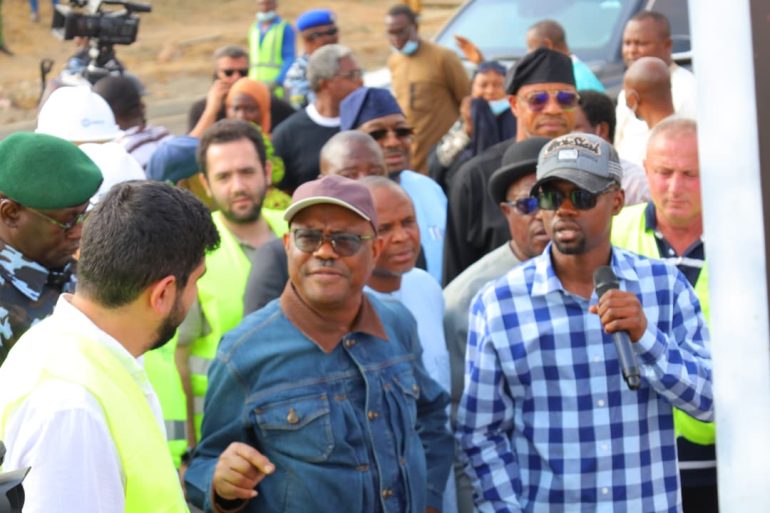Listeners:
Top listeners:
-
play_arrow
104.9FM Best rock music demo
-
play_arrow
Demo Radio Nr.1 For New Music And All The Hits!
-
play_arrow
Demo Radio Techno Top Music Radio
-
 play_arrow
play_arrow
Police Commissioner Launches Weapon and Riot Control Training for FCT Officers Democracy Radio

By Oluwakemi Kindness

As Nigerians grapple with overflowing waste bins, smoky skies, and unreliable electricity supply, the Nigerian Environmental Society (NES) says these everyday challenges remain the country’s most urgent environmental problems.
Speaking at a press briefing on Tuesday in Abuja ahead of its 40th anniversary celebrations and 34th National Conference, NES President, Dr. Efegbidiki Okobia, noted that ordinary citizens are living with the daily effects of poor waste management.
Others include rising pollution, and energy inefficiency, issues he says cut across homes, markets, and industries.
“These are not abstract problems; they are part of our daily lives,” Okobia said. “From blocked drains that cause flooding, to hazardous smoke from open burning of refuse, and the stress of constant power cuts, Nigerians are paying the price of environmental neglect.
That is why NES has spent four decades pushing for practical solutions and policies that directly impact our people.”
Backing this up, a recent NES survey on *Sustainable Professional Perception* showed that 90% of respondents identified waste management, pollution, and energy efficiency as the top three sustainability challenges requiring urgent national action.
The study also revealed that NES enjoys 80% visibility across the private and public sectors, with 70% rating its performance over the years as high.
The research further pointed to where efforts should focus in the future:
*strengthening environmental policies*,
*supporting businesses with green transition strategies*,
*And increasing public awareness and community engagement.*
Respondents also highlighted high interest in sustainability training, certification programs, and policy roundtable discussions.
Okobia said the upcoming conference, themed “Sustainable Cities with Smart Solutions in Africa: The Place of Environmental Management and Social Justice” will bring together policymakers, industry leaders, academics, youth, regulators, and development partners from within and outside Nigeria.
Keynote speaker is Sarah Mukherjee MBE, Chief Executive of the Institute of Sustainability and Environmental Professionals (ISEP) in the UK.
“The conference will provide a platform to review policies, discuss emerging environmental challenges, and showcase innovations in environmental science and engineering,” he explained.
“It will also foster partnerships that are critical for climate resilience, ecosystem restoration, and circular economy development.”
Founded in 1985, NES has grown from a small group of concerned professionals into Nigeria’s premier environmental watchdog, with over 35 chapters nationwide and a presence in the United Kingdom.
It has played advisory roles in the formulation of key environmental policies, including the National Policy on the Environment and the Environmental Impact Assessment (EIA) Act.
NES members have also served on inter-ministerial committees and represented Nigeria in international treaty negotiations.
Dr. Okobia noted that one of NES’s proudest achievements is nurturing the next generation of environmental stewards through active student chapters in universities across the country.
“Our youth wings are helping to instill a culture of sustainability early, ensuring continuity of the fight for a cleaner, safer environment,” he said.
For many Nigerians, however, the hope is that these discussions and milestones will move beyond the conference halls into real change cleaner streets, breathable air, and reliable energy.
Written by: Democracy Radio
#DemocracyRadio #Environment #NES
Similar posts
Copyright Democracy Radio -2024


